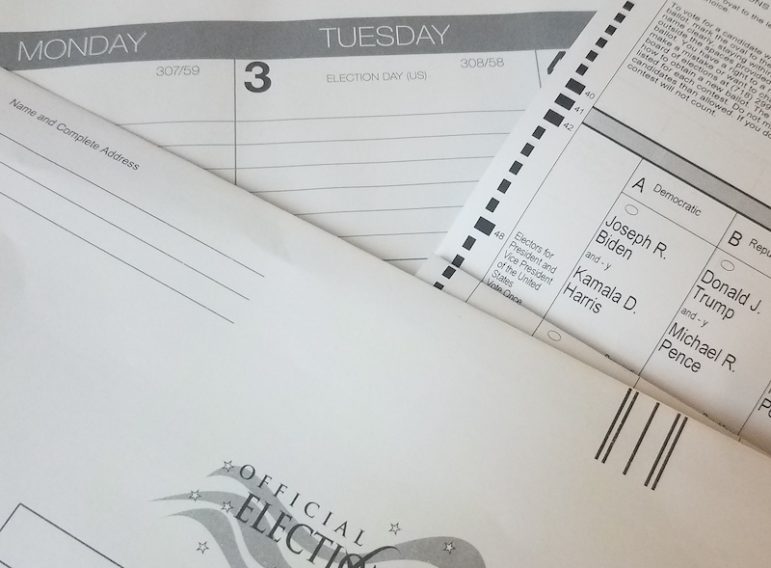‘During the three months we set up shop in Harlem every Saturday, we encountered scores of people who thought that because they had a felony conviction and/or they were on parole, they could not vote.’

Murphy
An election ballot.Richard’s smile was bright and full of pride as he stood up and moved back from our voter registration table. At 43 years old Richard had just registered to vote for the first time in his life. In fact, before he met members of the Alliance of Families for Justice (“AFJ”) on that Saturday afternoon in September, Richard was under the impression that he could not vote. He thought that because he had gone to prison when he was 18 years old and spent 22 years behind bars for a felony conviction that his right to vote was gone forever, even though he is a U.S. citizen.
Richard is not alone. During the three months that AFJ set up shop in Harlem every Saturday on Malcolm X Boulevard (Lenox Avenue) just north of 111th Street, we encountered scores of people who thought that because they had a felony conviction and/or they were on parole, they could not vote.
Like Richard, they had given up on having their voices heard. They had been marginalized by a lack of accurate information. Once we were able to explain their rights to them—and that in New York State, their right to vote was restored upon release from prison pursuant to an executive order by the governor back in April of 2018—they eagerly took a seat and filled out the voter registration form.
 CityViews are readers’ opinions, not those of City Limits. Add your voice today!
CityViews are readers’ opinions, not those of City Limits. Add your voice today!
Some people had difficulty understanding all of the questions, so we read them out loud and explained what was being asked. Others had difficulty reading, and we explained each question to them as well. Some potential registrants were thrown off by the question requesting their email address, since so many of our registrants did not have one. Similarly, many did not have a cell phone number. It became clear to us very quickly that if we had not been there and taken as much time as each person needed to help them with the process, many potential voters never would have registered.
Many of us members of AFJ look like the people we were registering, and we could talk their language. We had incarcerated loved ones or were formerly incarcerated ourselves. Many of us live in Harlem. Our office is in Harlem and within walking distance of our voter registration table. We set up our table and tent on a commercial strip in front of the liquor store, laundromat, pharmacy, fish market and grocery store.
Everyone going to and from those businesses or the subway station was on our radar screen to register. We were across the street from a public housing complex and down the block from a food pantry. And, we were literally smack in the middle of a host of street enterprises and underground economy. Nobody was bothered by our presence—they knew that we were providing an important service and not interested in interrupting the “natural flow of things” on the street. Many local residents helped to spread the word to their neighbors and friends that they could get registered to vote at our table and that we would help people navigate the process.
“Good morning Brother. Are you registered to vote?” “No?” “Why not?” “Oh, you didn’t know that now you can vote even though you have a felony conviction?” “Here, come on over and have a seat and we’ll explain everything to you and help you fill out the registration form, okay?” “You know, you can’t improve your community if you don’t vote. Right?” “Thanks so much for registering!” “Would you like to take some of our literature to give to other people you know who need to register?” “Sure, you can have as many of these posters as you want.” “See they explain everything about the right to vote and having a felony conviction.”
Akil came over and sat down at our table. He had not had the prescription for his glasses changed in nearly 15 years and as a result, he could not see the small print on the registration form. Not a problem. We sat with him and walked him through every question o that he could finally be included and have his voice heard.
Some people think voting is unimportant, but to the many residents of this underserved Harlem community who were able to register for the first time, the importance and historical significance of voting meant everything to them.
Soffiyah Elijah is the executive director at The Alliance of Families for Justice, which will be holding Get Out The Vote events for formerly incarcerated New Yorkers and their families from 10/24 through Election Day in Harlem and Brooklyn.








